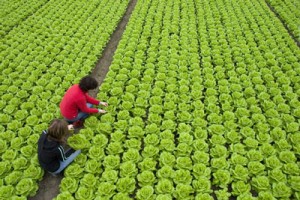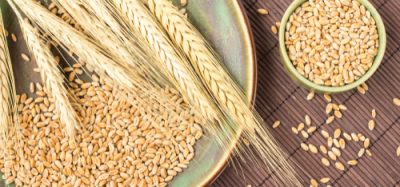UC Davis projects receive $5 million in USDA food safety grants to target bacteria and prevent foodborne illness
- Like
- Digg
- Del
- Tumblr
- VKontakte
- Buffer
- Love This
- Odnoklassniki
- Meneame
- Blogger
- Amazon
- Yahoo Mail
- Gmail
- AOL
- Newsvine
- HackerNews
- Evernote
- MySpace
- Mail.ru
- Viadeo
- Line
- Comments
- Yummly
- SMS
- Viber
- Telegram
- Subscribe
- Skype
- Facebook Messenger
- Kakao
- LiveJournal
- Yammer
- Edgar
- Fintel
- Mix
- Instapaper
- Copy Link
Posted: 14 April 2015 | Victoria White | 1 comment
Scientists at UC Davis are leading three new food safety research projects, recently funded with more than $5 million in grants from the USDA…


Scientists at the University of California, Davis (UC Davis) are leading three new research projects, recently funded with more than $5 million in grants from the U.S. Department of Agriculture’s National Institute of Food and Agriculture.
These grants are part of USDA’s $19 million effort to ensure the availability of a safe, nutritious and economically competitive food supply.
The projects are as follows:
Preventing cross-contamination in produce processing:
This more than $4.7 million project, conducted in partnership with Drexel and Rutgers universities, will focus on preventing foodborne illnesses by developing and eventually commercialising new fresh-produce processing technologies and methods. The new systems will minimise the risk of bacterial cross-contamination while the produce is washed, handled and packaged.
For more details, visit the Biological and Agricultural Engineering website.
Blocking bacterial spoilage in fruits and vegetables:
Another project, funded with a $498,000 USDA-NIFA grant, will be led by Maria Marco, associate professor in the Department of Food Science and Technology at UC Davis. Marco and colleagues intend to identify the genetic basis of traits of lactic acid bacteria found on fruits and vegetables. These bacteria are important for preventing food spoilage and for producing fermented foods and beverages, such as sauerkraut, kimchi, chocolate, sourdough bread and table olives.
The researchers expect their investigations will lead to fruits and vegetables with significantly better flavour, texture and nutritional quality.
Reducing harmful bacteria in leafy vegetables:
The third UC Davis project, funded with a new $499,812 USDA-NIFA grant, will focus on two important strains of E. coli (O157:H7) and salmonella (SL1344) bacteria. Theses bacteria can invade fresh produce in the field or during processing and, when consumed, cause serious foodborne illnesses in people.
The research team, led by Maeli Melotto, assistant professor in the Department of Plant Sciences, will investigate how these bacteria enter and thrive inside leafy vegetables, especially lettuce and spinach. Findings from the study will help guide development of innovative procedures for reducing the presence of these disease-causing bacteria in leafy vegetables.
For more information about UC Davis, please visit ucdavis.edu.
The first 2015 issue of New Food Magazine has more information about food safety.










A company in California that I work for has been engineering food safe products for a few years now and has just gone public. We utilize a bacteria free, sturdy synthetic material that we have used to make bacteria free bins, harvest trailers, and pallets. The synthetic material is called AgriGiene and it does not allow bacteria to grow on it, doesn’t require strong chemicals to sanitize it either. Furthermore, this material can be applied to existing surfaces to retrofit food processing facilities. We just went public and we are trying to spread the word to farmers and other industry professionals.